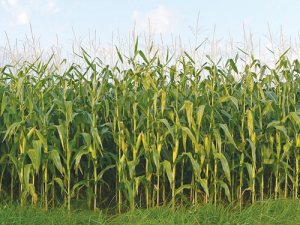These three big challenges farmers are facing this season include: the threat of Mycoplasma bovis, making changes to the feeding of PKE to lower FEI levels (coming into force in September) and, also on the horizon in most regions, the challenge to reduce N loss from farms.
Such a decision has big system impacts: notably, getting grass re-established after a maize crop becomes a critical decision affecting what hybrid to plant and when.
Choosing the right maize silage hybrid to plant has always been important in getting as much yield as possible. But for farmers growing onf arm, choosing the right maturity to ensure you get the maize off in time to get grass established in time is also important.
So how should you go about selecting the right maize silage hybrid?
Step 1: Choose a hybrid that has the right maturity for your growing environment.
To reach harvest maturity maize hybrids will have to acquire or accumulate a certain amount of heat. Short maturity hybrids have lower comparative relative maturities (CRMs) and require less heat than longer maturity hybrids (higher CRMs). The Pioneer brand ‘Maize for Silage’ catalogue for 2018-19 provides an approximate number of days from planting to harvest, by district, for all Pioneer brand maize hybrids. Choose the hybrids that fit in to the planting-to-harvest period that suits your regrassing program. You can get a free copy by either calling 0800 Pioneer (0800 746 633) or by going to the website pioneer.co.nz
Step 2: Choose a hybrid that has the right agronomic traits for your growing environment.
Selecting hybrids that have high ratings for the agronomic traits that are important in your area will help ensure stable yields over a number of years. For example, if you are planting maize on light soils in a drought prone area, choose a hybrid with a good drought tolerance rating. Likewise, if the paddock is in a windy spot, good root and stalk strength ratings are important.
Step 3: Select hybrids that will give high drymatter yields.
With improving genetics, newer varieties are tending to outperform their older team mates. Each year we produce yield comparisons which compare one hybrid against a group of others. Table 1 shows the relative yield performance of a range of hybrids against their team mates. As you can see, the difference between one hybrid and another can be quite large.
It is therefore important to talk to your seed merchant or Pioneer area manager, to help you choose the right hybrid that, given steps 1 and 2 above, will perform best on your farm.
Step 4: Buy high quality maize seed.
Maize hybrids vary genetically in their ability to germinate and grow rapidly under cool stressful conditions; this is known as seed vigour. However, differences in seed vigour are not only due to genetics. Seed harvesting method, handling, drying, shipping and storage can all influence the emergence and growth potential of the maize hybrid you plant. For best results buy high quality NZ-produced seed from a company that has ISO certified quality control systems in place.
Ordering maize seed
Once you have chosen what hybrid you want, you need simply to place your order. You may be wondering why I have written about choosing a maize hybrid for next spring when the maize silage harvest has just finished. There are two reasons. Firstly, you can remember what has worked and what hasn’t with the hybrid(s) you have been using. Secondly, and more importantly, Pioneer is offering an early order maize scheme that reduces the risk of the impact of crop failure for any reason during planting and harvest. Not only is the seed replaced but you also get $100/ha to go toward your replanting costs. By ordering before the end of June, you are also more likely to get the hybrid of your choice.
For further information contact your local maize seed merchant or call 0800 PIONEER (0800 746633).
• Ian Williams is a Pioneer forage specialist. Contact him at This email address is being protected from spambots. You need JavaScript enabled to view it.









